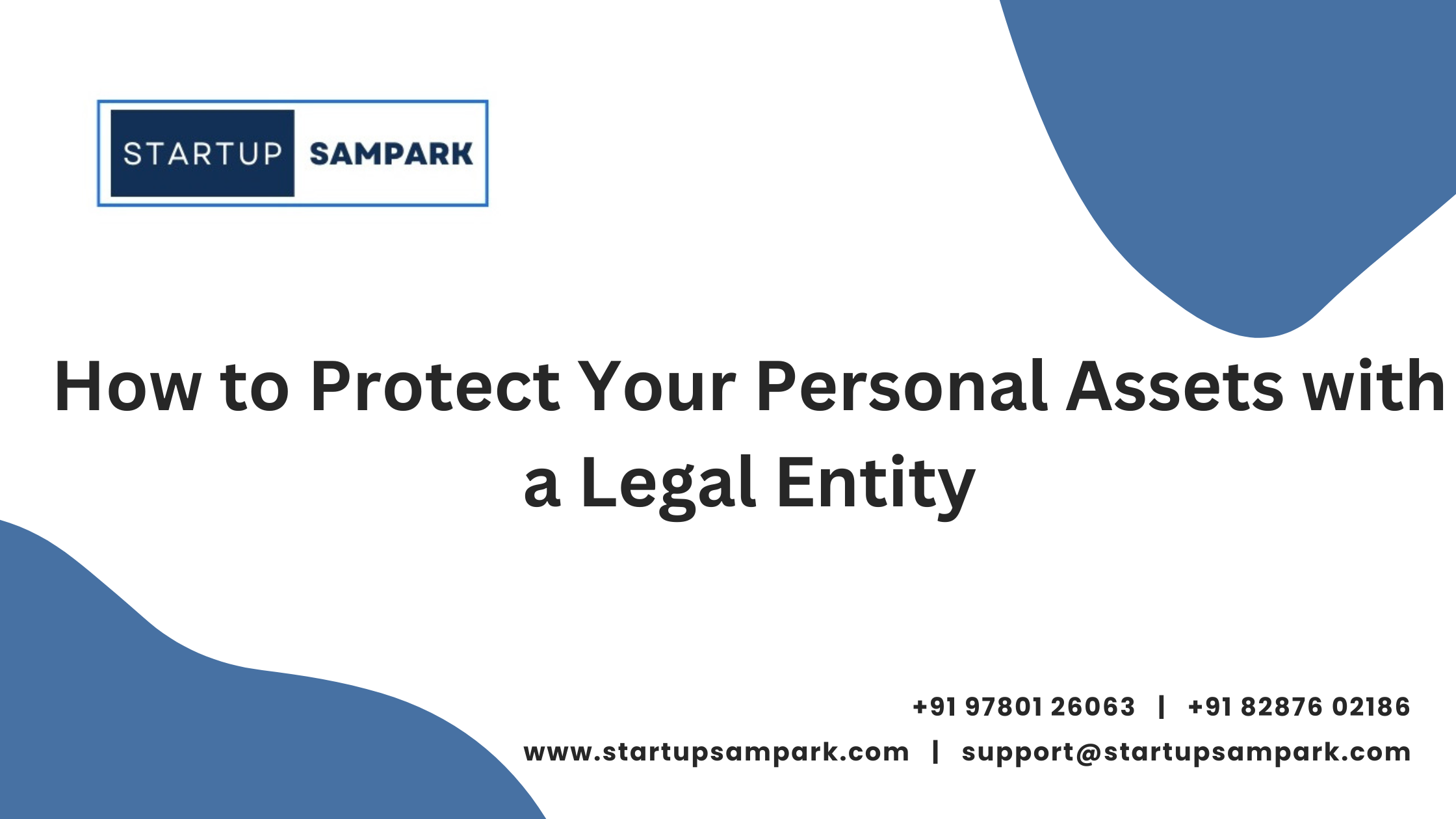How to Protect Your Personal Assets with a Legal Entity
Introduction to Personal Asset Protection in India
Protecting personal assets is a crucial concern for entrepreneurs and business owners in India. When starting a business, one of the key decisions involves selecting a legal entity that not only suits the operational needs but also safeguards personal assets from business liabilities. Without the appropriate legal structure, business debts, lawsuits, and financial obligations can endanger personal property, savings, and other assets. Understanding how different legal entities can provide this protection is essential for anyone looking to establish a secure and sustainable business.
Understanding Limited Liability
One of the primary advantages of establishing a legal entity, such as a Limited Liability Partnership (LLP) or a Private Limited Company, is the principle of limited liability. This means that the owners’ personal assets are separate from the business’s liabilities. In the event of financial difficulties or legal issues, creditors can only pursue the business’s assets, not the personal assets of the owners or shareholders. For instance, if a Private Limited Company faces bankruptcy, the personal homes, cars, and savings of its shareholders remain protected. This legal distinction is crucial for entrepreneurs seeking to minimize their risk exposure while still pursuing business ventures.
-
 Startup Registration (DPIIT Recognition)₹8,850.00
Startup Registration (DPIIT Recognition)₹8,850.00
Choosing the Right Business Structure
The choice of business structure plays a significant role in determining the level of personal asset protection. Structures like Sole Proprietorship and traditional Partnerships do not provide the same level of protection as LLPs or Private Limited Companies. In a Sole Proprietorship, the owner is personally liable for all business debts, meaning creditors can pursue personal assets if the business fails. Similarly, in a partnership, all partners share liability, exposing their personal belongings to business risks. Therefore, entrepreneurs should consider forming an LLP or Private Limited Company to enjoy the benefits of limited liability and protect personal assets effectively.
Legal Compliance and Corporate Governance
Maintaining proper legal compliance and corporate governance is essential for preserving the limited liability protection offered by a legal entity. For instance, companies must hold regular meetings, keep accurate financial records, and comply with statutory reporting requirements. Failure to adhere to these obligations can lead to a legal doctrine known as “piercing the corporate veil,” where courts may disregard the entity’s separate legal status and hold owners personally liable for debts and obligations. Therefore, business owners should prioritize maintaining compliance with all legal requirements to ensure that their personal assets remain shielded from business risks.
Insurance as a Complementary Protection
While establishing a legal entity provides a significant layer of protection for personal assets, it is not a comprehensive solution on its own. Entrepreneurs should also consider obtaining appropriate business insurance to further safeguard their personal assets. Types of insurance, such as general liability insurance, professional liability insurance, and property insurance, can offer protection against unforeseen circumstances, including lawsuits, accidents, and property damage. By combining a strong legal entity with adequate insurance coverage, business owners can create a robust defense against financial risks and liabilities that could impact their personal wealth.
Proper Asset Management and Separation
Another important aspect of protecting personal assets is ensuring a clear separation between personal and business finances. Entrepreneurs should open dedicated business bank accounts, maintain separate accounting records, and avoid using personal assets for business purposes. This separation reinforces the legal distinction between the business and its owners, further supporting the limited liability protection. Additionally, keeping personal and business transactions distinct can help in legal disputes, making it easier to defend against claims that may seek to pierce the corporate veil and hold owners personally liable.
Conclusion: A Comprehensive Approach to Asset Protection
In conclusion, protecting personal assets through the establishment of a legal entity in India is a multifaceted process that involves understanding the principles of limited liability, choosing the right business structure, ensuring legal compliance, obtaining insurance, and managing assets effectively. By taking these steps, entrepreneurs can significantly reduce their personal risk exposure while pursuing their business ambitions. Consulting with legal and financial advisors can provide valuable insights and strategies tailored to individual circumstances, ensuring that personal assets remain safeguarded against the inherent risks of business operations.
Startup, India
-
 Startup Registration (DPIIT Recognition)₹8,850.00
Startup Registration (DPIIT Recognition)₹8,850.00















Post Comment